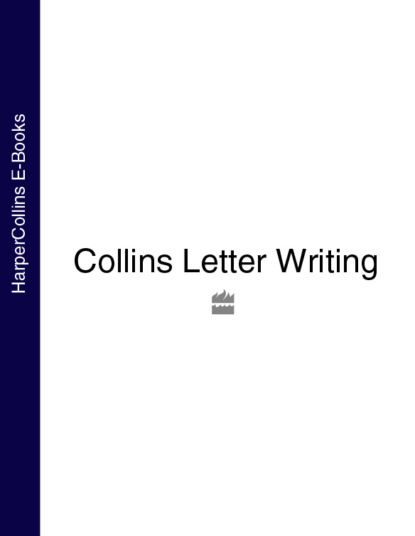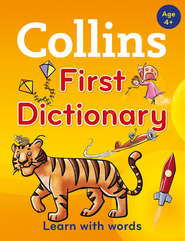По всем вопросам обращайтесь на: info@litportal.ru
(©) 2003-2025.
✖
Collins Letter Writing
Настройки чтения
Размер шрифта
Высота строк
Поля
3 Some nouns ending in f or fe drop the f and add ves: wife, wives; loaf, loaves. (But some do not: roof, roofs.)
4 Some foreign words which retain their original Greek or Latin forms retain their original plural forms:
Latin: axis, axes; medium, media; stratum, strata.
Greek: crisis, crises; basis, bases; criterion, criteria.
EXERCISE
Pick out and classify the nouns in the following passage:
About a week subsequently to the incidents above narrated, Miss Temple, who had written to Mr Lloyd, received his answer: it appeared that what he said went to corroborate my account. Miss Temple, having assembled the whole school, announced that inquiry had been made into the charges alleged against Jane Eyre, and that she was most happy to be able to pronounce her completely cleared from every imputation. The teachers then shook hands with me and kissed me and a murmur of pleasure ran through the ranks of my companions.
Thus relieved of a grievous load, I from that hour set to work afresh, resolved to pioneer my way through every difficulty. I toiled hard, and my success was proportionate to my efforts; my memory, not naturally tenacious, improved with practice; exercise sharpened my wits. In a few weeks I was promoted to a higher class; in less than two months I was allowed to commence French and drawing. I learned the first two tenses of the verb Etre, and sketched my first cottage (whose walls, by the way, outrivalled in slope those of the leaning tower of Pisa) on the same day.
Extract from Charlotte Brontë’s Jane Eyre, chapter 8 (#litres_trial_promo)
ANSWERS
PRONOUNS
Apronoun is a word used instead of a noun. The most important aspect of the pronoun to note, for practical purposes, is that the only words in the English language which have retained different forms depending on whether they are the subject or the object of a sentence are all pronouns. As a basic guideline the subject of a sentence is the person doing the main action. The object is the person at the receiving end of this action. The difference between the two leads to one of the classic confusions of the English language – the difference in usage between ‘I’ (subject pronoun) and ‘me’ (object pronoun).
When trying to decide, ask yourself if you would use ‘me’ in the same sentence on its own. ‘John and me went to the party’ doesn’t sound too bad but ‘me went to the party’ is wrong.
EXAMPLE
I am the subject of this sentence. He told me some news about Suzy.
When deciding whether a person is the subject or the object of a sentence, you must look at the main verb (or doing word) and ask yourself ‘who does this verb refer to?’
EXERCISE
Complete the following sentences with the correct form of the personal pronoun.
1 John and —- went to the party (I, me).
2 The book was for John and —- (I, me).
ANSWER 1
A Ask yourself ‘which is the verb in question 1?’
B Answer: went
C Who went?
D Answer: John and I
ANSWER 2
A Ask yourself ‘which is the verb in question 2?’ B Answer: was C What was?
D Answer: the book – therefore John and me must be the objects of this sentence
VERBS
It is possible to have a sentence without a verb, but it is unusual. A verb, as mentioned above, is the ‘doing’ word in a sentence. It is the word that drives the sentence along – the ‘action’ word. It is the part of speech by which we are able to say what a thing is – for example, ‘Spot is a dog’ – or with which we are able to describe what a person, animal or thing does – for example, ‘Spot barks loudly’.
The thing to remember about verbs is that they have certain features which are not shared by other parts of speech. They have different forms to indicate at what time an action happened (past, present or future tenses) and they have different forms to indicate who is doing the action (‘I do’, ‘he does’.) To get this wrong is, clearly, ungrammatical.
Verbs are either regular or irregular. Regular verbs add ‘ed’ to form the past tense and, generally, present few problems to the native speaker.
There are, however, over 250 irregular verbs.
EXAMPLE
Just remember to check if you’re not sure. A useful reference book for English grammar is English Grammar in Use by Raymond Murphy (Cambridge University Press). A useful website is
WEB TIP http://members.nbci.com/,or trywww.studyweb.com
SPLIT INFINITIVES
This is a very common mistake and you should try to avoid it. ‘To boldly go where no man has gone before’ is wrong. It may sound correct but you should never split the ‘to’ part of the verb from the main part of the verb (‘go’) mainly because the meaning of the sentence can then become unclear.
EXAMPLE
wrong: I want to just catch the bus.
right: I just want to catch the bus.
Now we know exactly what you want.
You will see split infinitives in use frequently. No one will cease to communicate with you because you have split an infinitive but it is better – much better – to get these things right.
ADJECTIVES
An adjective is a word that describes a noun or, possibly, another adjective.
EXAMPLE
The car is dark blue.
Adjectives can make your letter a little more descriptive or lively but only when used in moderation. In other European languages, the way that the adjective is written must change to agree with the noun it is describing. In English, there are almost no adjectives like this, but a very few have been absorbed from the continent:
EXAMPLE
He is blond. She is blonde.











